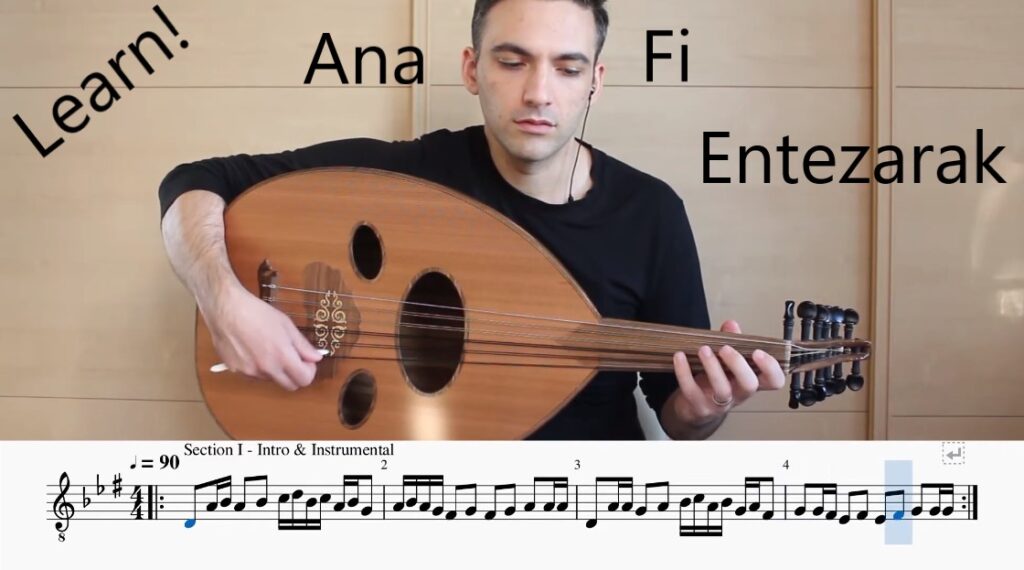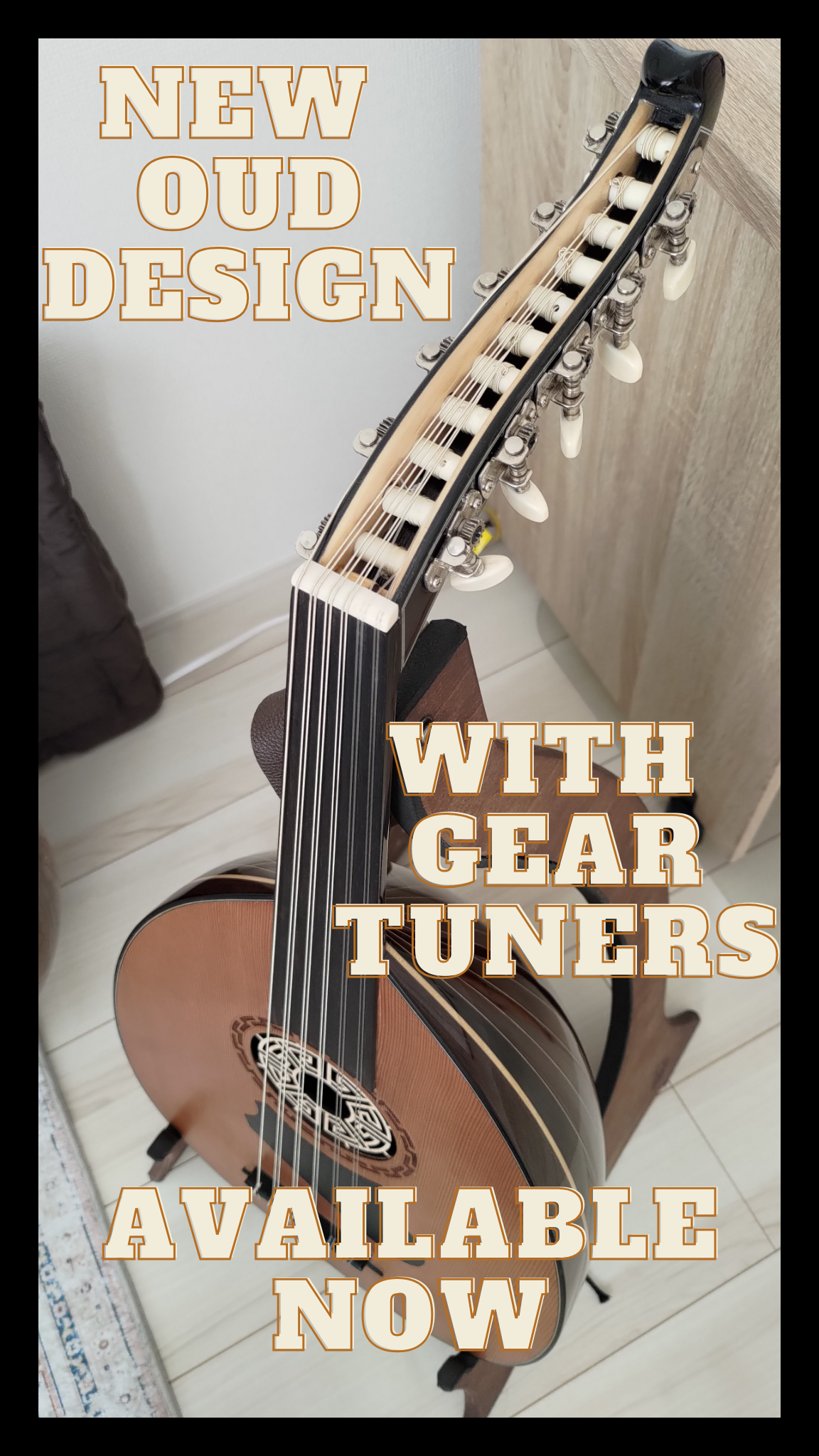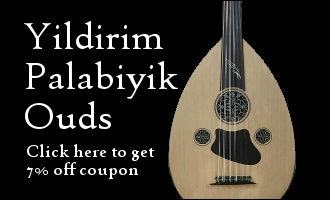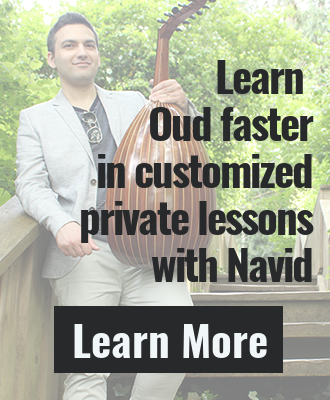Umm Kulthum is one of the most challenging artists to really understand as an Oud learner, especially if you’re learning Arabic music as an outsider to the culture.
BUT, she’s also one of the most important Arabic artists in the 20th century, and one of the most well-known in the world.
Let’s explore how Umm Kulthum is challenging as well as essential to learn.
You may recognize many of the most famous songs and music suites of hers, such as Alf Leila wa Leila, Hob eh, Inta Omri, Al Atlal, Baaid Anak, Leilet Hob, etc.
But this artist’s music is a kind of music we are no longer really used to consuming.
Why Umm Kulthum is challenging.
- The music is lengthy.
- The music is deep and complex.
- The lyrical aspect is a mystery unless you understand Arabic.
- The sound quality can be tiring for our modern ears preventing us from listening deeply.
Let’s face it.
Our musical tastes have changed over the last 100 years.
We’re used to songs that are catchy, and short.
We’re used to music that sounds perfect. Sound engineering is becoming so good that we get disappointed when we see our favourite band live because they don’t always sound as good live.
We don’t have free time the same way as before.
We have so many options for entertainment that it’s become unimaginable to sit and just listen to 45 minutes of music.
Maybe you disagree with the above, or maybe you can relate.
Nevertheless, Umm Kulthum’s product is one of a different time, place, and people.
Umm Kulthum’s music was popular during a time when the only form of entertainment was the radio. People would sit around and listen to the radio instead of Netflix-and-chill.
It was also a time when new technologies and instruments were becoming used in the middle east… but it was still a time where real-life instruments were used to make music.
Why is Umm Kulthum’s music important.
- Her music was composed by the most skilled and influential composers of the century. (Is anyone making music like that anymore?)
- She was a woman, and wasn’t a pretty face. She took her audience with the charm of her voice. She was a woman leader in a world dominated by men who found success.
- Her pure vocal command was impressive and expressive, giving life to the lyrics she sang.
How do you go about learning Umm Kulthum’s music?
If you go and find some of Umm Kulthum’s famous pieces and listen for a bit, you may become overwhelmed by the variety of maqams, modulations, instrumentation, and rhythms that are employed in just one session.
So how do you go about exploring this music?
First, remember that Umm Kulthum’s music can only be recreated with other musicians. It’s going to be impossible to sit by one’s self and try to gain anything of value by trying to learn every melody in a long musical suite.
Often, this music was off-the-cuff and with Umm Kulthum. Performances vary in their execution and require the communal nature of a group of musicians to really recreate the experience. It always depended on how the musicians were feeling in the moment, and how the singer lead that determined how things would turn out.
So go easy on yourself.
I suggest you start by learning some of her shorter, catchier songs.
One of the tunes I suggest learning is a composition by Zakaria Ahmad, notably sang by Umm Kulthum in the 1950’s, called “Ana Fi Entezarak”. It means, “I’m waiting for you.”
You can get started with this Oud tutorial right here:
You can learn the whole song by signing up for this Egyptian Music Course Vol. 1.
In this course, you can learn 5 epic, must-know songs composed by Egyptian artists. Check it out.
1. The Sultan of Oud, Mohamed Al-Qasabji’s “Dhikrayati” (AKA Zikrayati).
2. The Melodious Knight, Karem Mahmoud’s “Samra Ya Samra”.
3. The Father of new Egyptian music, Sayed Darwish’s “Salma Ya Salama”.
4. “Ana Fi Entezarak”, sung by Star of the East, Umm Kulthum, and composed by another famous composer Zakariya Ahmad.
5. Award-winning composer, Oudist, and vocalist, Said Mustafa’s “Ishitlal Bayati” (instrumental).
We’re launching the course, on November 27, and when you enroll between Nov 27th and 29th, you’ll be able to get a free bonus Oud tutorial to learn more music by Umm Kulthum.






